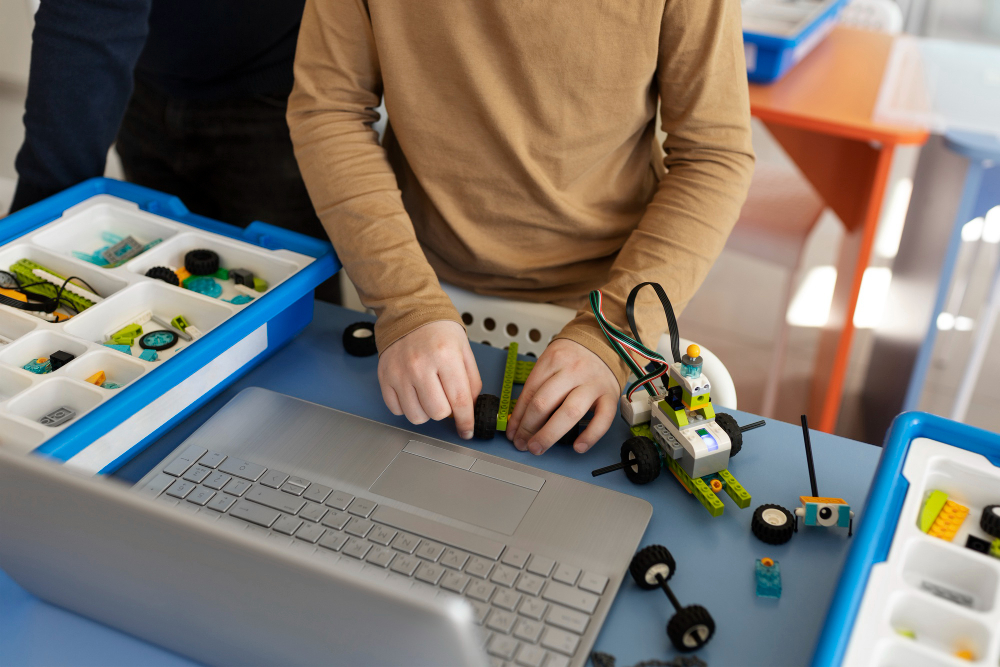In recent years, the eLearning industry has witnessed a significant transformation driven by the evolution and application of Artificial Intelligence (AI) technologies. These advancements have revolutionized the way education is delivered, allowing for a more personalized, efficient, and accessible learning experience. AI-infused eLearning resources are introducing revolutionary changes and equipping learners with tailored educational experiences, which are significantly different from the traditional one-size-fits-all model of education. This new approach towards education emphasizes personalized learning, harnessing the power of AI to ensure that each learner receives a unique educational experience.
The heart of AI’s transformative impact on eLearning lies in its ability to tailor educational experiences through adaptive learning platforms. Adaptive learning systems use data-driven insights to understand and predict learners’ needs, adjusting the learning path and resources according to individual performance levels. By analyzing a learner’s strengths and weaknesses, these systems dynamically modify the content and mode of delivery. This process ensures that learning is not only effective but also engaging, as it aligns closely with the learner’s specific requirements and pace, fundamentally making learning a more individualized journey.
AI-powered tutors are another groundbreaking element in the eLearning sphere, offering individualized support that mimics one-on-one tutoring. These AI tutors are capable of addressing questions, providing explanations, and suggesting resources on a scale that human instructors cannot match. The interaction between the learner and AI systems can be continuous and in real-time, thus creating an educational environment that is more responsive and inclusive. By adapting to the learner’s needs, AI tutors foster efficient learning by offering immediate feedback and guidance to help students overcome obstacles swiftly.
Automation in eLearning extends beyond adaptive learning and virtual tutors, permeating numerous administrative tasks that are critical to the educational process. AI drives automation by streamlining tasks such as grading, assessing progress, and managing administrative operations. This not only enhances efficiency but also frees educators from routine tasks, allowing them to focus more on student interaction and development. Automating these elements ensures that educators can devote their energy to the creative and strategic aspects of education, thus improving the overall educational experience for both learners and teachers.
Furthermore, immersive technologies such as virtual reality (VR) and augmented reality (AR) powered by AI are opening new frontiers in educational environments. These technologies create engaging, hands-on learning experiences that enable students to interact with complex concepts in a virtual setting. Immersive learning experiences powered by AI allow learners to visualize and experiment with abstract concepts, making education more tangible and contextual. This experiential learning method not only boosts comprehension and retention but also ignites a greater interest in the subject matter, enhancing the overall educational experience.
As AI continues to develop and proliferate in the eLearning domain, it is essential to address challenges related to data privacy and ethical considerations. The collection, analysis, and storage of student data bring forth significant privacy concerns that need robust solutions. Stakeholders in the eLearning industry must ensure that AI-driven educational technologies comply with prevailing privacy laws and ethical standards. Ensuring trust and security is crucial to the widespread adoption and success of AI in eLearning, thereby necessitating concerted efforts from developers, educators, policymakers, and the community.
In conclusion, AI is poised to redefine the future of education by crafting personalized learning futures that are engaging, flexible, and scalable. The continuous integration of AI in eLearning is expected to transform educational landscapes dramatically. By providing tailor-made educational experiences and automating significant processes, AI offers a compelling vision of accessible and personalized learning for all. As AI technology evolves, it holds the potential to bridge educational gaps, accommodating diverse learner needs and nurturing a personalized education ecosystem poised to thrive in the digital age.
